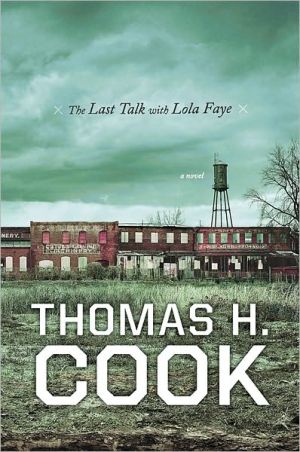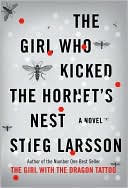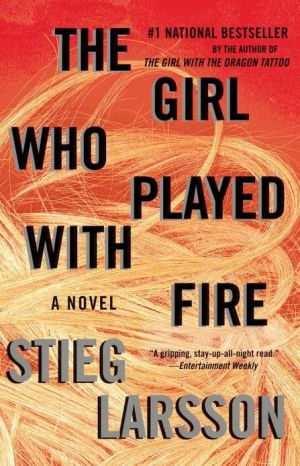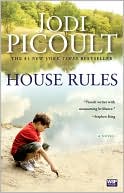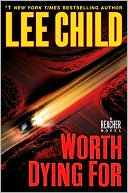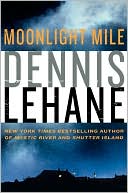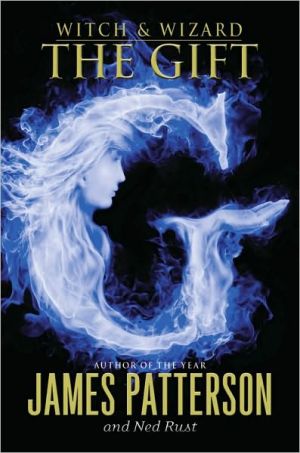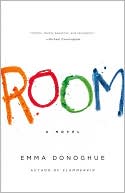The Last Talk with Lola Faye
"For Years, Lucas Page Has Known Whom To Blame For His Father's Murder. But Lola Faye Gilroy Has A Different Story To Tell..." "I have long been an admirer of Thomas H. Cook's novels, and The Last Talk with Lola Faye is one of his best yet: an expertly plotted, beautifully written, compelling and suspenseful book."-Harlan Coben, Author Of Caught" "Thomas H. Cook is a rare jewel of a writer, a powerful storyteller and an elegant stylist. If you are not familiar with his work, you absolutely...
Search in google:
Middling historian Lucas Page visits St. Louis to give a sparsely attended reading—nothing out of the ordinary. Except among the yawning attendees is someone he did not expect: Lola Faye Gilroy, the “other woman” he has for decades blamed for his father’s murder.Reluctantly, Luke joins Lola Faye at a hotel bar. As one drink turns into several, these two battered souls relive, from their different perspectives, the most searing experience of their lives. Slowly but surely, they are transported back to the tiny southern town where this defining moment—a violent crime of passion—is turned in the light once more to reveal flaws in the old answers. As it turns out, there is much Luke doesn’t know. And what he doesn’t know can hurt him. Trapped in an increasingly intense emotional exchange, and with no place to go save back into his own dark past, Luke struggles to gain control of an ever more threatening conversation, to discover what Lola Faye is after—before it is too late.Publishers WeeklyIn this tightly coiled, intellectual drama, Cook (The Chatham School Affair) unwinds a marvelously tense story of belated redemption. While in St. Louis for a book tour, Luke Page, a middle-aged writer of lackluster histories, agrees to meet with a long-forgotten acquaintance, the “little hayseed tramp” he believes triggered a bloody tragedy that befell his family decades earlier. The story alternates between Luke’s recollections of his hometown; the “heady ambition” of the despicably cruel, contemptuous younger Luke, who wants to go to Harvard and gets swept up “in the lethal tide of [his] own grand dream”; and the numb, disillusioned academic who sits down for a drink with Lola Faye Gilroy. A vertiginous precipice eventually materializes in front of Luke, who must finally confront the true nature of his father’s heinous murder and its equally tragic aftermath. The younger Luke is without a doubt one of the more convincing modern villains, a single-minded overachiever devoured by raging oedipal loathing and equally consumed by narcissistic ambition. (Aug.)
So, Luke, what’s the last best hope of life?\ The memory surfaced as it often did, out of the blue, for no apparent reason: Julia, my lost wife, glances up from something she’s been reading, takes off her glasses, and, knowing that nothing will ever open inside me until I answer it, she bluntly poses her question.\ I was standing before a glass display case filled with old frontier blankets when this memory last came to me. The blankets were thick and rough, and I imagined those first westward settlers curled up beneath them, whole families pressed together as they waited out the night. How fiercely the prairie winds must have lashed their little wagons, shaking the spindly frames and billowing out the canvas. Later they’d no doubt used these same blankets to ward off the frigid cold that had so ruthlessly whipped the plains, spreading them over the dirt floors of their dugouts, or layering them over their own shivering bodies, where they’d huddled with their dogs as the wind howled outside. How much warmth these blankets must have provided, I thought. How often they must have seemed the only warmth.\ It was this sense of physical suffering in the service of some great hope that had once formed the basis for all my human sympathy, the one deep feeling that was truly mine, and that had once fired my dream—boyishly, perhaps, but yet more powerfully for that—of writing my own great books.\ In those books, I’d hoped to portray the physical feel of American history, its tactile core: the searing bite of a minié ball, the sting of a lash, the muscular ache of hard labor and the squint of small chores—what it had actually felt like to pick cotton, hew a tree, fire a locomotive, thread a needle made of whalebone, shape a candle by another candle’s light. Mine would be histories with a heartbeat—palpable, alive, histories that pulsed with true feeling.\ I’d done none of that, I knew, as I turned from that glass case, those neatly stacked frontier blankets. I’d written a few books, the most recent to be published just three months from now, but I’d never created anything that approached the works it had been my youthful ambition to write.\ It’s one thing to bury an old dead dream, however, and quite another to attempt, again and again, to resurrect a dream you can’t let die, which is what I’d done, always beginning with a passionate concept, then watching as it shrank to a bloodless monograph. I’d repeated this process many times, and later that same afternoon, only a few minutes after I’d stood before those frontier blankets, I prepared my desk for yet another run at my old best hope, but stopped and found myself thinking about where it had all begun.\ Then, rather suddenly, it came to me, a memory of my mother’s wedding ring. Just before leaving Glenville, I’d picked it up and looked at it closely, like a jeweler, recalling all the times I’d seen her delicately remove it before washing dishes because she feared it might slip off and disappear down the drain. At the heart of those memories, I should have felt some gritty aspect of her life: the weight of an iron as she pushed it across a shirt, the oily touch of dishwater, the gooey damp of batter, and if not these, then at least I should have been able to infuse the ring she’d cherished with that power of time and remembrance we trivialize with the phrase sentimental value.\ Surely, I should have felt something at such a moment, but tellingly, I hadn’t. Unless one could call numbness a feeling, for that was the only sensation I’d actually had, a numbness at the core, everything dry, brittle, dead, all of which should have told me that no matter how many times I tried, I would never write the deeply sentient books it had been my dream to write, that I was, and always would be, as Julia had once said, a strangely shriveled thing.\ Standing at my desk, recalling the unfeeling way with which I’d stared at my mother’s ring, I heard again her earlier question: So, Luke, what’s the last best hope of life?\ I glanced out the window, into the chill September rain, and thought again of how life’s darkest acts pool and swirl, but never go under the bridge.\ So, Luke, what’s the last best hope of life?\ I’d had no answer then.\ Now I do.
Introduction 6Part 1 Making Life Miserable for the Liberal Party 9Part 2 Keating's Way with Words 38Part 3 KEATING! The Musical We Had to Have 174Further Reading 184Acknowledgments 186Illustration Sources 187Index 189
\ Publishers WeeklyIn this tightly coiled, intellectual drama, Cook (The Chatham School Affair) unwinds a marvelously tense story of belated redemption. While in St. Louis for a book tour, Luke Page, a middle-aged writer of lackluster histories, agrees to meet with a long-forgotten acquaintance, the “little hayseed tramp” he believes triggered a bloody tragedy that befell his family decades earlier. The story alternates between Luke’s recollections of his hometown; the “heady ambition” of the despicably cruel, contemptuous younger Luke, who wants to go to Harvard and gets swept up “in the lethal tide of [his] own grand dream”; and the numb, disillusioned academic who sits down for a drink with Lola Faye Gilroy. A vertiginous precipice eventually materializes in front of Luke, who must finally confront the true nature of his father’s heinous murder and its equally tragic aftermath. The younger Luke is without a doubt one of the more convincing modern villains, a single-minded overachiever devoured by raging oedipal loathing and equally consumed by narcissistic ambition. (Aug.)\ \ \ \ \ Library JournalWhile on a book promotion tour in St. Louis, history professor Lucas (Luke) Page has managed to unload a single autographed copy of his latest tome onto a rather dowdy but delightfully irrepressible older woman who introduces herself as Lola Faye Gilroy. She's the woman he's regarded for years as the reason for his father's murder decades before in the small town of Glenville, AL. Her appearance opens the floodgates of memory as surely as if she were Proust's madeleine. The remainder of the novel is the extended conversation between the two, fueled (for him) by glasses of pinot noir and (for her) by appletinis with occasional forays into calamari ("it's like a cross between a French fry and a rubber band"). During the evening, she develops a taste for both as the pair unearth the sins, lies, blindness, and odd murders that have brought them to where they are.Verdict Edgar and Barry Award winner Cook (The Chatham School Affair, Red Leaves) has described himself as "one of the best-known unknown writers"; with his latest he'll likely retain his title for, in this genre-driven world, mystery fans will find him discursive, while he may well be overlooked by his real audience, fans of quirky small-town fiction of the type written by Richard Russo. However, those seeking a good, old-fashioned, character-driven storyteller who offers something to mull over would do well to seek out Cook on his next book tour.—Bob Lunn, Kansas City, MO\ \ \ From the Publisher"In this tightly coiled, intellectual drama, Cook (The Chatham School Affair) unwinds a marvelously tense story of belated redemption. While in St. Louis for a book tour, Luke Paige, a middle-aged writer of lackluster histories, agrees to meet with a long-forgotten acquaintance, the "little hayseed tramp" he believes triggered a bloody tragedy that befell his family decades earlier. The story alternates between Luke's recollections of his hometown; the "heady ambition" of the despicably cruel, contemptuous younger Luke, who wants to go to Harvard and gets swept up "in the lethal tide of [his] own grand dream"; and the numb, disillusioned academic who sits down for a drink with Lola Faye Gilroy. A vertiginous precipice eventually materializes in front of Luke, who must finally confront the true nature of his father’s heinous murder and its equally tragic aftermath. The younger Luke is without a doubt one of the more convincing modern villains, a single-minded overachiever devoured by raging oedipal loathing and equally consumed by narcissistic ambition."\ —Publishers Weekly, STARRED\ \ \
